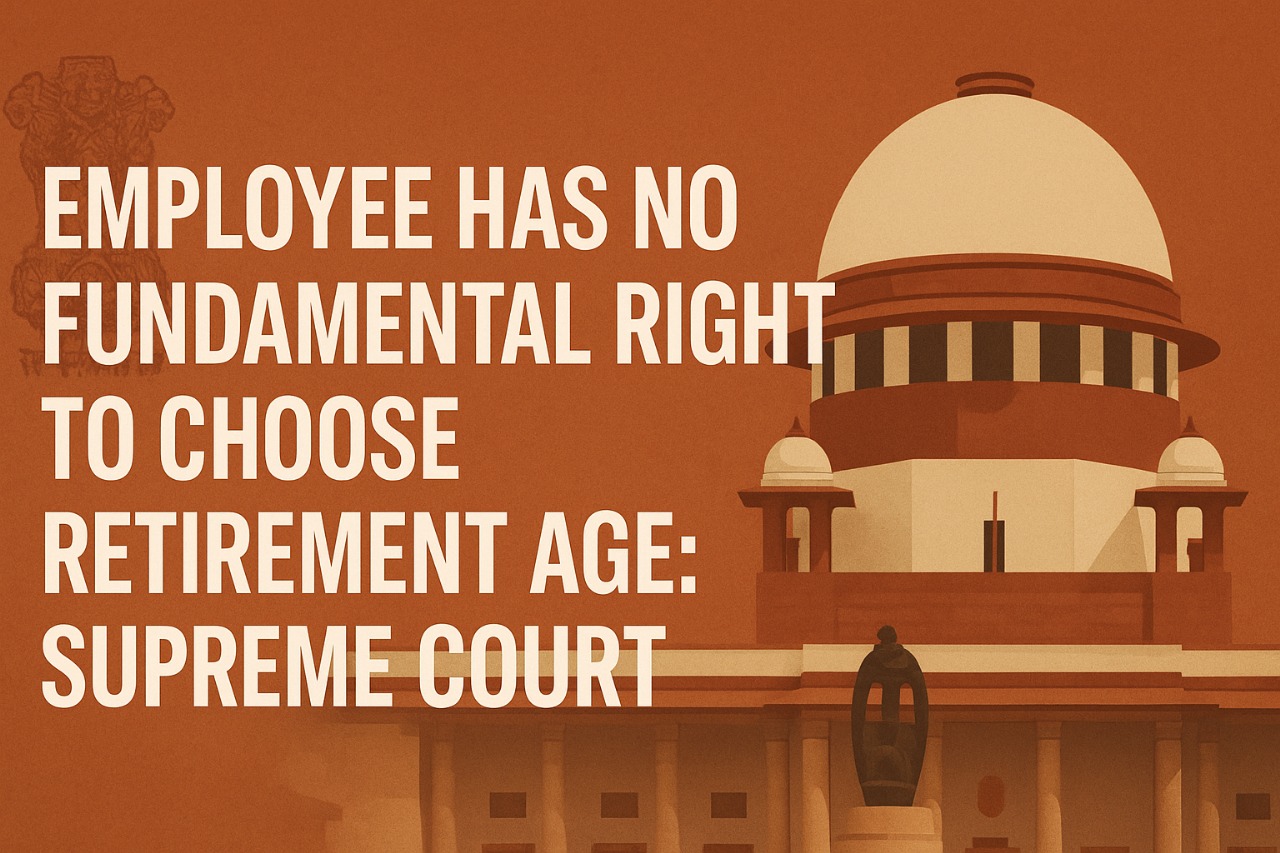Introduction
In a latest and significant judgment, the Supreme Court of India emphatically held that an employee has no fundamental right to opt for or decide the age of retirement. This seminal verdict was issued in response to an increasing number of lawsuits by employees resisting retirement policies. The top court ruling not only confirms the power of employers, particularly those from the government and public departments, but also clarifies the extent to which fundamental rights can be limited in employment situations subject to statutory regulations and administrative decrees.
Background of the Case
The decision came in a case in which a government servant had challenged the age of retirement, arguing that they should be permitted to work past the stipulated age. The petitioner had argued that compulsory retirement at a certain age was against Articles 14 and 21 of the Indian Constitution, which ensure equality before law and the right to life and personal liberty, respectively.
The contention was that personal liberty under the Constitution protected the right to livelihood and the right to make personal choices, including the time to retire from one’s profession. The petitioner also argued that retirement age policies were arbitrary and discriminatory in imposing a restriction.
Major Legal Observations
The Supreme Court bench dismissed these contentions, though. In a well-reasoned and reasoned judgment, the Court held that:
· Service conditions, such as retirement age, are regulated by rules and regulations designed by the employer, which generally form part of statutory service rules or contractual requirements.
· No employee has a constitutional or basic right to unilaterally decide their retirement age.
· The right to life in Article 21 cannot be interpreted to mean freedom from service conditions properly framed by an employer.
· Article 14 (equality) is also not meant to imply employees can insist on equal treatment irrespective of service rules; consistent treatment of retirement policies is not an infringement of equality.
The Court noted that the age of retirement is generally settled with the consideration of several factors, including the efficiency of administration, change in generations, economic viability, and opportunities for employment of youth. Policy issues of this nature are best left to the rule-making authority and not for judicial encroachment.
Implications of the Judgment
This decision will have far-reaching consequences, especially in government service. It strengthens the legitimacy of regulatory service rules and discourages courts from entertaining petitions against retirement ages legally prescribed. It should also curb litigation from employees challenging extensions or claiming discrimination when required to retire.
In the private sector, though employers and employees have greater contractual freedom, this ruling still reaffirms the wider legal position: “retirement age is a policy choice, not an individual one”.
Conclusion
In this verdict, the Supreme Court has firmly set apart personal ambitions and organizational policy. Employees, particularly those in public service, are subject to the terms outlined in service rules. While constitutional rights safeguard against arbitrary behavior, they do not empower persons with the right to set aside legitimate employment norms. The ruling asserts administrative discipline and maintains the norm that “personal freedom is not synonymous with reconstituting public service modalities.”.
About the Author
Agnimitra is a law student at the Department of Law, Hazra Campus, Calcutta University, Kolkata, with a growing passion for legal writing and research. Deeply interested in Intellectual Property Law, International Law, and issues related to Women and Child Safety, Agnimitra enjoys exploring how the law modernizes itself to the changing times of society. Whether it’s through writing articles or diving into legal debates, Agnimitra is always eager to understand and share the evolving nuances of the legal world.

